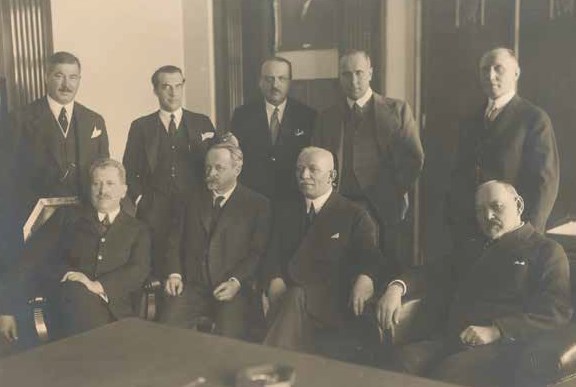Supported by the Lapedatu Foundation, the Lapedatu Fellowships started at NEC in June 2018.
According to its Statute, the Lapedatu Foundation supports research activities on ‘the life and work of Lapedatu family members and the socio-cultural and political context’ during which they lived. Thanks to a generous financial contribution from the Lapedatu Foundation, NEC invites to Bucharest a foreign researcher specialized in the field of Romanian Studies, who is currently conducting research in one of the world’s top universities. On this occasion, he will spend a month in Romania and work with a young Romanian researcher to organize an academic event hosted by the NEC. At this colloquy, the Lapedatu fellows and their guests will present scientific papers and initiate debates on a theme that covers important topics of the Romanian and Southeastern European history in both modern and contemporary epochs. The contribution of the Lapedatu family members to the development of Romania will particularly be taken into consideration.
Public events within the Program:
-International workshop
Tourism, Infrastructure, and Modernity in the Carpathians from the Nineteenth Century to the Present
November 18, 2024, at NEC
-International workshop
Transgressing Boundaries: The History and Memory of the Religious Underground in Romania, Moldova and Beyond
December 4, 2023, at NEC & via Zoom
-International workshop
Rural Voices
November 11, 2022, at NEC & via Zoom
-International workshop
A New World after the Great War? Romania and South-Eastern Europe between Modernization, Nationalism and Violence
October 21, 2021, Zoom
-International workshop
Urban Communities and Urban Transformation in the Romanian Principalities/Old Kingdom Romania (1831–1914)
April 16, 2019, New Europe College
News:
>An editorial release authored by Andreas Wild, President of the Lapedatu Foundation:
The Lapedatu brothers – artisans of modern Romania in the generation of the Great Union (2024)

Photo: Administration Council of the General Insurance Bank (Ion I. Lapedatu seated, second from right)
>Programul de „Burse Lapedatu” la Colegiul Noua Europă (2023)
>Programul de „Burse Lapedatu” la Colegiul Noua Europă (2021-2022)
>Programul de „Burse Lapedatu” la Colegiul Noua Europă (2020–2021)
View fellows by year:
